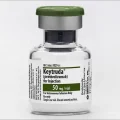How has LGBTQ+ healthcare developed over the last 50 years?


This July will mark 50 years since the UK’s first official Gay Pride rally, held in London in 1972.
Fifty years ago, the landscape for LGBTQ+ people was rapidly changing.
The dawn of the decade, after the Sexual Offences Act of 1967 partially decriminalised male homosexuality, saw the LGBTQ+ community begin to gain visibility and the security to campaign for better rights and medical access.
The past five decades have seen numerous advancements in LGBTQ+ healthcare, but the community still faces significant health inequality, from healthcare access to treatment outcome.
A wealth of research shows that the members of the community are significantly more at risk of conditions such as cancer, dementia, self-harm, mental illness, addiction and suicide, to name a few.
For elder, disabled or people of colour, discrimination and barriers to access are even more significant.
Conversion therapy
In 1980, the NHS condemned the use of conversion therapy, a pseudoscientific practice designed to ‘cure’ LGBTQ+ sexual orientation or gender identity. But since then, private practitioners have still been allowed to tell patients they can be ‘cured’.
Conversion therapy is still legal in the United Kingdom. In 2018, the Conservative Party pledged to make it illegal, but have since suggested there may be religious exemptions, which led a member of the government LGBT+ advisory board to resign.
The same year, a government survey of LGBT people found that 5% of respondents said they had been offered conversion therapy.
In 2015, a group of major UK organisations published a Memorandum of Understanding condemning conversion therapy, updating it in 2017 to warn against conversion therapy in relation to gender identity.
The Royal College of General Practitioners, a network of more than 50,000 family doctors, were the only medical royal college to co-sign. Professor Helen Stokes-Lampard, Chair of the Royal College of GPs, said: ‘Being gay or trans is not a disease, it is not a mental illness and it doesn’t need a cure.’
Just this April, the UK government agreed to ban conversion therapy aimed at changing a person’s sexuality – but crucially, performed a radical U-turn on also banning conversion therapy of gender identity and trans people.
Mental health
Until 1992, the World Health Organisation still listed homosexuality as a mental illness. It wasn’t until 2018 that it stopped listing trans identities as such, either.
‘This seems to be a pattern,’ says Andrew Gilliver, one of LGBT Foundation’s Pride in Practice Coordinators, ‘not just in our understanding of LGBTQ+ people’s healthcare, but also in accepting the diversity and validity of recognising each individual’s right to be respected as the person they say they are.’
In 2018, a government survey showed that a quarter of LGBTQ+ people had tried to access mental health services the year before, but less than a third said they found it easy.
The following year, the Women and Equalities Committee found that the community was still overlooked by health and social care services, despite being significantly more at risk of mental health issues.
The most recent Stonewall study found that half of LGBTQ+ people had experienced depression, three in five experienced anxiety and one in eight aged 18-24 had attempted to take their own life. Almost half of trans people had considered suicide.
Terrence Higgins Trust
In 1982, a 37-year-old man named Terry Higgins became one of the first people in the UK known to have died of an AIDS-related illness.
After the young Welshman died in a London hospital, his partner and friends set up the Terry Higgins Trust, to raise funds and awareness about an illness still known as ‘Gay-Related Immune Deficiency’.
Ian Green, CEO at Terrence Higgins Trust, tells Metro.co.uk: ‘I was exploring my sexuality during the early days of the epidemic and witnessed first-hand the virus devastate a generation of gay and bisexual men.
‘I saw people who were healthy and vibrant become so dreadfully ill and then just disappear – without an invite to their funeral.
‘When everyone else turned their backs, the LGBTQ+ community stepped up to help each other to bring vital awareness about the facts on HIV. They rallied around those who were sick and dying through fundraising, buddying, hospital visits and being their support network at a time when many of their families had disowned them.’

The Trust collaborated with the London Lesbian and Gay Switchboard on a public meeting about AIDS, and in 1983 the trust became a formal organisation, and then a charity – the first in the UK set up as a response to the HIV epidemic. It merged with an array of other organisations in 1999 and is now considered the UK’s foremoest HIV and sexual health charity.
Green adds: ‘The government did not take the epidemic seriously enough and buried their head in the sand, it was the activists like those who set up Terrence Higgins Trust who fought for them to pay attention.’
The Trust now helps those affected by HIV – gay men, men who have sex with men, black African communities, sex workers, addicts, haemophiliacs – always with their involvement, whether volunteers or staff from sufferers or members of the community.
In 2010, the Trust began to work with the Elton John AIDS Foundation in launching LifePlus, the country’s first long-term health programme for managing HIV.
AIDS campaign
When the first cases of HIV were detected in the UK in the 1980s, the virus was known as GRID (Gay Relate Immune Deficiency) before being changed to AIDS in 1984.
Terms like ‘the gay plague’ were widely used, because in its early days HIV primarily affected men who had sex with men.
In 1985, a man with AIDS was detained under the Public Health (Infectious Diseases) Regulations – the first and only time they have ever been enacted.
The following year, the BBC broadcast its first in-depth documentary on the virus as part of its Horizon series entitled, ‘AIDS: A Strange and Deadly Virus’.
In 1986, amid rapidly escalating case numbers and casualties, the government and health department launched an AIDS-education campaign, called ‘Don’t aid AIDS’. It is often remembered as the ‘Don’t die of ignorance’ or ‘tombstone’ campaign.
A leaflet was sent to every home in the country.
‘The big problem,’ the advertising agency designer Malcolm Gaskin told The Guardian, was that ‘nobody knew anything about’ the virus. ‘It was like an alien plague. Where did it come from? How big would it get? Panic and speculation was spreading.’
The advert targeted the disease, rather than those who suffered from AIDS, and is widely considered one of the most impactful advertising campaigns of all time, having a lasting effect on STI transmission in the UK.
PrEP and combination therapy
The nineties saw a range of advancements, from public declarations like that of Freddie Mercury to widespread awareness and the first World AIDS Day. But what made the most difference in the fight to contain the AIDS epidemic was medical treatment.
In 1996, triple combination therapy (known as HAART), began to dramatically reduce the death rate. Triple combination therapy using protease inhibitors became standard, and the viral load test was developed, providing more information about disease progression.
As Gilliver explains: ‘In the mid-1990s, Combination Therapy for people affected by HIV really made a massive difference not just to the quality of people’s lives but in making sure that anyone who is living with HIV can now live a long and healthy life.’
HIV is now treated with antiretroviral medicines, free in the UK, which work by stopping the virus replicating and allowing the immune system to repair itself.
Treatment can reduce the amount of virus to an undetectable level, low enough that the virus cannot be passed on to anyone else.
PrEp (pre-exposure prophylaxis) is an oral medicine that can be taken by HIV negative people before a situation that might involve exposure, like sex or drug use.
It greatly reduces the chance of contracting HIV – it’s almost 100 per cent effective when taken correctly. However, access to this drug is limited on the NHS, only being available to high-risk individuals, although it is more freely available in Scotland and Wales.
‘The introduction of PrEP has been a game changer in HIV prevention,’ says Green. ‘It’s now available for free across the UK from sexual health services, but needs to be promoted beyond gay and bisexual men to women and other communities who might benefit from it.’
In 2018, THT established an access fund to provide PrEP to people in England and Northern Ireland who might not be able to afford it.
If diagnosed early, people living with HIV today can expect to live as long as anyone else. Last November, the first long-acting injectable treatment for HIV was approved, giving an alternative to people who might struggle to access oral medicine.
Now, there are an estimated 106,890 people living with HIV in the UK, but most are aware of their status; 98% are on effective treatment and 97% cannot pass on the virus.
But the stigma, and the incorrect belief that HIV only affects gay men, or can be passed on by close contact, still persists in some places today, even though it can affect anyone (now almost as many women as men) and can only be transmitted through fluids like semen, blood, vaginal mucus or breast milk.
Until last summer, blood donations from gay and bisexual men were restricted.
Help us raise £10k for Kyiv Pride and a UK LGBT+ charity
To celebrate 50 years of Pride, Metro.co.uk has teamed up with Kyiv Pride to raise money for their important work in Ukraine.
Despite war raging around them, Kyiv Pride continue to help LGBTQ+ people, offering those in need shelter, food and psychological support.
We will be splitting the cash with a grassroots charity closer to home.
You can donate here
Trans healthcare
In 2004, The Gender Recognition Act gave transgender people the right to change their legal gender. This does not currently cover non-binary people, which leaves a significant portion of the trans population without any legal recognition.
Charlie Craggs is an author, activist and CEO/founder of Nails Transphobia, an organisation that educates the public on trans issues while offering them manicures from a pop-up salon.
She describes the state of trans healthcare in the UK as ‘dire’.
The average waiting time for a first appointment – merely to discuss transitioning – is more than four years, she says, in stark contrast to public narratives that young patients in particular are rushed through the process.
‘My BBC documentary, “Transitioning Teens”, showed the effect of these inhumane waiting times: depression, suicide and desperation – buying black market hormones and having to fundraise to go private,’ says Charlie. ‘It shouldn’t be like this in the fifth richest country in the world with a free healthcare system, and it doesn’t have to be like this.’
A 2018 Stonewall report revealed that two in five trans people said healthcare staff lacked understanding of their needs. About 24% feared discrimination, and did not know how to access transition-related healthcare.
A spokesperson from Mermaids, a charity that supports trans and non-binary young people, says: ‘Bodily autonomy must not be dependent on having a conventional gender history, and it is trans and non-binary people’s fundamental right to have access to the same healthcare available to the rest of the UK population.
‘This means giving trans young people access to reversible puberty blockers on the basis of their own consent; ensuring primary care physicians have the knowledge and expertise to provide gender identity support to avoid a “postcode lottery” of care; and establishing regional centres for direct service delivery to address the excessively long NHS waiting times.’
They cited a recent Cass interim repot which stated a need for a total overhaul of the current system, to increase and improve the healthcare available to trans and non-binary people.
Fertility
It is exceedingly difficult for LGBTQ+ couples to start a family. In a survey conducted by Stonewall and DIVA last year, 36% of respondents who had children experienced barriers or challenges when starting their family.
Money is reportedly the biggest obstacle, with 1/5 of queer couples with children saying the staggering costs of private fertility treatments were a difficulty.
Guidelines in England state that in order to access IVF, women have to have struggled to have conceived after two years of unprotected sex, or 12 cycles of artificial insemination (IUI or intrauterine insemination).
However, some queer couples believe this effectively creates a ‘gay tax’ for lesbians, with 12 rounds of IUI costing up to around £30,000. Funding for this varies amongst different local clinical commissioning groups (CCGs), so accessing IVF has become a ‘postcode lottery’.
Influencers Megan Bacon-Evans, 34, and her wife Whitney, 33, are now fighting their clinical commissioning group for discriminating against them financially due to their sexuality in what will be a landmark legal battle for queer couples looking to have a baby.

In a statement, Megan and Whitney explained: ‘Female same-sex couples are being forced to pay tens of thousands of pounds in artificial inseminations in expensive private clinics to prove that they are infertile before they are eligible for any fertility treatment on the NHS.
‘However, cis heterosexual couples can qualify for IVF on the NHS if they have not become pregnant after two years of unprotected sex. While this is a long time, it is at no additional financial cost.’
The Department for Health and Social Care recently conducted an internal policy review of the variation in access to NHS fertility services, which will inform their Women’s Health Strategy, due to be published soon. Stonewall has developed a postcode tool you can use to find out about provision in your local area and write to your MP to call for change.
“Access to fertility services should not be dictated by where you live or who you love,’ states CEO at Stonewall, Nancy Kelley. ‘But our new tool highlights that LGBTQ+ people face a discriminatory postcode lottery when trying to access NHS fertility services. It’s outrageous that, in some areas, LGBTQ+ couples trying to start a family using IVF have to pay £25,000 more than their neighbours to access vital fertility services. For many, this extra financial burden is insurmountable.
‘It’s vital that NICE (The National Institute for Health and Care Excellence) and the Government now commit to providing equal access to fertility services for all. Everyone who wants to start a loving family should have the chance to, and LGBTQ+ couples are no exception.’
What’s next?
London Friend is the UK’s oldest charity dedicated to the health and mental well-being of LGBTQ+ people in the capital, and celebrates its 50th anniversary this year.
The chief executive, Monty Moncrieff MBE, says that although awareness of the community’s needs has improved over time, they still face “significant barriers trying to access appropriate support.’
He adds: ‘Sexual health services are often better at meeting the needs of gay and bisexual men due to the impact of HIV, but lesbian and bi women and trans people still experience a lack of understanding about their needs, and can often be offered inappropriate advice.
‘Progress has been made, but we still have some way to go for healthcare staff to truly understand how growing up LGBT – with all the negative attitudes we’ve had to listen to as we do – truly impacts on our health and wellbeing.’
Gulliver says: ‘As an LGBTQ+ patient, the opportunities to receive the healthcare that you need are dependent on the knowledge and confidence of the health professionals you meet.
‘Among the most significant challenges many LGBTQ+ people face are simply a lack of visibility, understanding and knowledge of healthcare providers. Add to this a lack of confidence in understanding health inequalities as experienced by these communities.’
The Equality Act of 2010 has been hugely important in establishing sexual orientation and gender reassignment as protected characteristics, and the included Public Sector Equality Duty (PSED) requires authorities to recognise the need to tackle discrimination and promote equality. This means it is now far easier to openly discuss LGBTQ+ health inequalities.
After all, says Gulliver, ‘we are a lot more aware now than we were 50 years ago.’
Metro.co.uk celebrates 50 years of Pride
This year marks 50 years of Pride, so it seems only fitting that Metro.co.uk goes above and beyond in our ongoing LGBTQ+ support, through a wealth of content that not only celebrates all things Pride, but also share stories, take time to reflect and raises awareness for the community this Pride Month.
MORE: Find all of Metro.co.uk’s Pride coverage right here
And we’ve got some great names on board to help us, too. From a list of famous guest editors taking over the site for a week that includes Rob Rinder, Nicola Adams, Peter Tatchell, Kimberly Hart-Simpson, John Whaite, Anna Richardson and Dr Ranj, we’ll also have the likes Sir Ian McKellen and Drag Race stars The Vivienne, Lawrence Chaney and Tia Kofi offering their insights.
During Pride Month, which runs from 1 – 30 June, Metro.co.uk will also be supporting Kyiv Pride, a Ukrainian charity forced to work harder than ever to protect the rights of the LGBTQ+ community during times of conflict. To find out more about their work, and what you can do to support them, click here.
Do you have a story to share?
Get in touch by emailing [email protected].
Metro.co.uk celebrates 50 years of Pride
This year marks 50 years of Pride, so it seems only fitting that Metro.co.uk goes above and beyond in our ongoing LGBTQ+ support, through a wealth of content that not only celebrates all things Pride, but also share stories, take time to reflect and raises awareness for the community this Pride Month.
MORE: Find all of Metro.co.uk’s Pride coverage right here
And we’ve got some great names on board to help us, too. From a list of famous guest editors taking over the site for a week that includes Rob Rinder, Nicola Adams, Peter Tatchell, Kimberly Hart-Simpson, John Whaite, Anna Richardson and Dr Ranj, we’ll also have the likes Sir Ian McKellen and Drag Race stars The Vivienne, Lawrence Chaney and Tia Kofi offering their insights.
During Pride Month, which runs from 1 – 30 June, Metro.co.uk will also be supporting Kyiv Pride, a Ukrainian charity forced to work harder than ever to protect the rights of the LGBTQ+ community during times of conflict. To find out more about their work, and what you can do to support them, click here.
Source: Read Full Article




